PRESERVING A MILITARY LEGACY FOR FUTURE GENERATIONS
The following Reflections represents MSG Edwin Holt’s legacy of his military service from 1967 to 2008. If you are a Veteran, consider preserving a record of your own military service, including your memories and photographs, on Togetherweserved.com (TWS), the leading archive of living military history. The following Service Reflections is an easy-to-complete self-interview, located on your TWS Military Service Page, which enables you to remember key people and events from your military service and the impact they made on your life. Start recording your own Military Memories HERE.
Please describe who or what influenced your decision to join the Army.

After graduating from St. Paul Central High School in 1966, I spent one uninspired quarter at the University of Minnesota. During that time, I decided college was not for me just yet. My father served in the Army during World War II in the South Pacific, and I knew that with the war in Vietnam going on, it would only be a matter of time before I was drafted. After talking to my father and getting his perspective, I decided to enlist in the Army.
At the time, I had no idea how many different jobs there were in the Army. When the recruiter learned that the only skill I could point to was being the Sports Editor of my high school paper, he recommended I try and become a military journalist. As a result, I enlisted and was guaranteed to attend the Defense Information School at Ft. Benjamin Harrison following Basic Training.
Whether you were in the service for several years or as a career, please describe the direction or path you took. What was your reason for leaving?
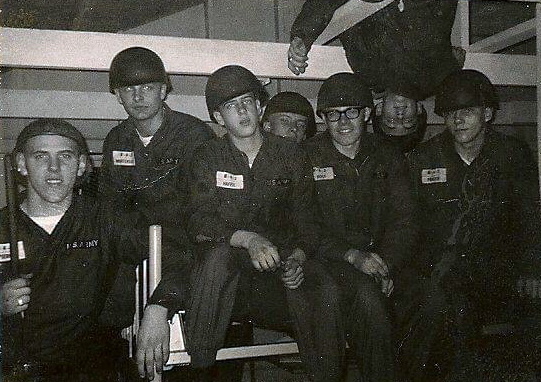
On January 16, 1967, I boarded a train going from Minneapolis to Tacoma, Washington. The train was full of newly enlisted Soldiers, all heading to basic training at Ft. Lewis, Washington. We had all spent the earlier part of the day at the enlistment center, getting physicals, a few shots, and filling out reams of paperwork.
We arrived in Tacoma and boarded buses heading to the base where we would spend the next eight weeks learning to be Soldiers.
I feared I had made a big mistake, dropping out of college and now committed to three years of active service. When Staff Sgt. Riggins, one of the drill instructors, caught me smiling in formation; he put the fear of God in me as he was not impressed with my demeanor and totally reinforced my opinion that I had made a big mistake.
I came to love the guys in my squad and platoon who felt like brothers as we drilled, marched, and learned how to be an Army Soldier.
If you participated in any military operations, including combat, humanitarian and peacekeeping operations, please describe those which made a lasting impact on you and, if life-changing, in what way?
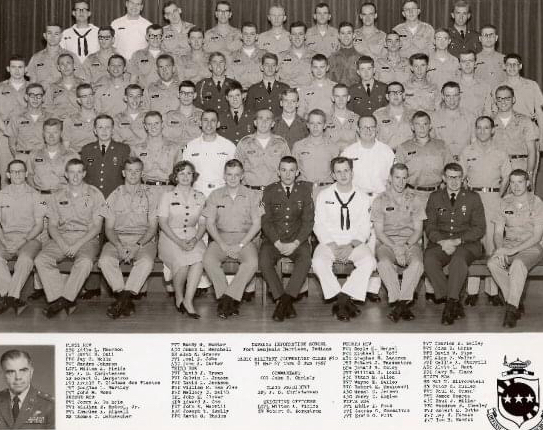
Following basic training, I attended and graduated from the Defense Information School at Ft. Benjamin Harrison in Indiana.
I was initially sent to Ft. McPherson, Georgia, to begin my military career as a military journalist. I found myself covering all kinds of stories. However, I settled into covering command sporting events.
Late in 1967, our journalist crew were put on orders, some for Vietnam and some for Germany. I was on the Germany list.
In late 1967, I was sent to the 2nd Brigade of the 3rd Infantry Division at Harvey Barracks, Kitzingen, Germany.
The problem was there were no military journalists in the 2nd Brigade. Enter Specialist 5 Roger Bukszpan. I teamed with him to start a post newspaper, which we named the “Harvey Sentinel.” I was assigned to cover the 3rd Infantry Division’s baseball, football, and basketball teams through Roger’s maneuvering, which was a big deal in those days.
I became a stringer for the Stars and Stripes and spent one year at Harvey Barracks until I was picked up as a writer for the 7th Corps Support Command at Panzer Barracks outside of Stuttgart, Germany. I had the same sports beat and became the Sports Editor of the Command Newspaper.

In early 1969, the 7th Corps Support Command was drawn down. I had less than a year to serve, so I was sent to the 5th Corps Support Command in Frankfort, Germany. There, I again took up the role of sports editor of the command paper and stringer for Stars and Stripes.
Finally, in late 1969, my three-year military commitment to active duty was at an end. In January 1970, I became a civilian and returned to school at the University of Minnesota, more than happy to attack books and a degree. I never thought I would return to military service.
That all changed in 1989 when I was encouraged to return to service through the Minnesota Army National Guard. After trying the Guard for three years on “try ones,” I decided to go for it. After 22 years of service, I am a retired soldier and very proud to have served.
In the Guard, I have been deployed on State Active Duty several times, twice to Panama, Norway, and the Arctic Circle, back to Germany, and the longest deployment, nine months, as a NATO peacekeeper in Bosnia and Herzegovina with the 125th Mobile Public Affairs Detachment in support of the 34th Infantry Division during Operation Joint Forge.
Did you encounter any situation during your military service when you believed there was a possibility you might not survive? If so, please describe what happened and what was the outcome.
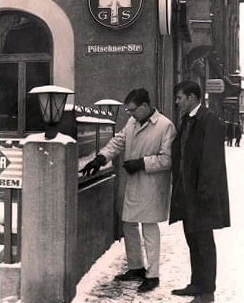
I don’t think I ever felt I controlled my destiny in the military. Certainly, being a military journalist involved with Public Affairs as a mainstay made most of us look like the REMFs we hear about
Still, after the Tet Offensive in Vietnam, the First Sergeant called me into the orderly room and told me on was on the list of Soldiers from the 3rd Infantry Division to be sent to Vietnam.
That night, the orderly room was quiet, and the clerk there was waiting for the phone call to let us know we were indeed going to be sent to Vietnam. The call never came.
In reading the history of the Vietnam War years later, I learned the call never came because Congress decided pulling troops out of Europe would damage the image of things being in control in Vietnam. So, Congress decided not to go ahead at that time.
Again, while serving with the 7th Corps Support Command in Germany, when the unit was drawn down, I had under one year left in my enlistment. I was called into the orderly room and asked if I wanted to extend so I could be sent to Vietnam. I was set to go back to school that January, so I declined.
Jim Sheehy, my very good military journalist friend from that unit, had more than a year to go and was sent to Vietnam. He was awarded a Purple Heart and still has small shrapnel fragments in his back that can not be removed. We are in touch to this day.
Of all your duty stations or assignments, which one do you have fondest memories of and why? Which was your least favorite?
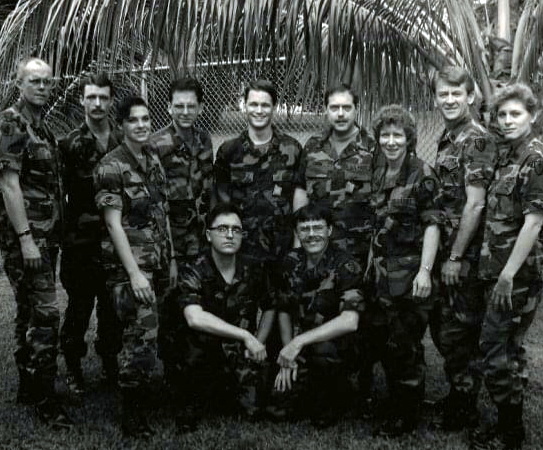
As a military journalist, my duty stations felt like a series of adventures. I spent two years on posts in Germany and traveled to all the “free” countries either on assignment or on leave. The Eastern Bloc countries were not accessible. Those two years probably provided my fondest memories as I was relatively carefree, and exploring Europe was quite dynamic. I was able to travel by train, plane, and boat and felt, at times, like a real journalist.
I don’t think there was a least favorite duty assignment. After leaving the service in 1970 to go back to college, I returned to service in 1989 through the Minnesota Army National Guard. While in the Guard, I was sent to Panama twice, Germany again, the Arctic Circle in Northern Norway, as well a NATO Peacekeeping mission to Bosnia and Herzegovina as part of Operation Joint Forge.
I loved writing stories and taking pictures of Soldiers. I loved having articles published in hometown newspapers and national military publications. We had a clipping service that provided weekly articles that had been published containing Army National Guard articles. I was able to gather most of the articles I wrote and have binders of clippings no one else will probably ever be interested in, but they are fun to reread on occasion.
From your entire military service, describe any memories you still reflect back on to this day.
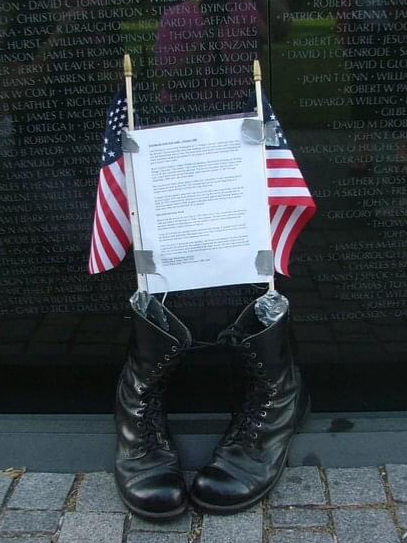
There are lots of memories that surface on a regular basis at the Vietnam Memorial Wall in Washington, D.C. I see the names of five high school classmates. Looking at the Wall, I also know there are Soldiers from my basic training class whose names are listed, but the names are gone from my memory. I know I could have been sent to Vietnam, and things unfolded in a different direction for me.
I reflect on the many women and men I have served with over 22 years in uniform. They are among the best people I have known.
When I travel, I compare experiences on deployments with countries I visit. When I went to Vietnam as a tourist in 1994, I thought about my neighborhood friend Bruce Truhler, who was killed there so many years ago.
What professional achievements are you most proud of from your military career?
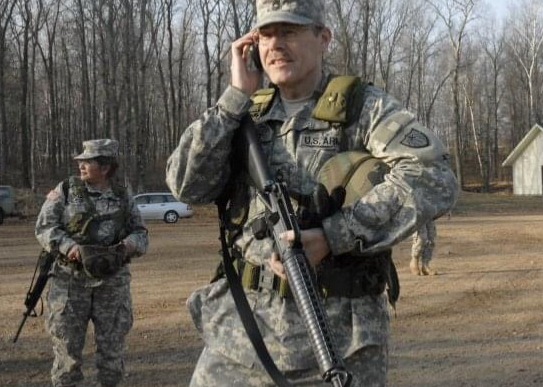
I am happy and relieved that I was able to combine two careers and make them work without one canceling the other. In the military, I was a journalist, and in civilian life, I was a Supervisor of Social Workers.
The two did not have a lot of overlap, yet each one provided a change of focus from the other. That kept each area feeling dynamic and fresh.
For that, I am grateful that Hennepin County supported my time away as a soldier and thankful that the Army has allowed me to continue serving my country.
Of all the medals, awards, formal presentations and qualification badges you received, or other memorabilia, which one is the most meaningful to you and why?

I had two distinctive periods of service. From 1967 to 1970, I was active in the Army. Then, in 1989, I re-entered the military through the Minnesota Army National Guard and served until September of 2008.
In civilian life, I was a Social Worker with Hennepin County in Minneapolis, Minnesota. I had not touched anything related to journalism since my time in the Army.
When I re-entered the service, I didn’t know if I could muster the skills of photojournalism and the emerging electronic programs involved with military journalism publications. I was also concerned that I held up my end on the physical side.
I worked hard in both areas. On the physical side, I scored a perfect 300 for nine straight years on the Armed Forces Physical Fitness Test. In my entire military career, my lowest score was 291, with my last PT score being 299 in 2008. Damn, that lost a point on the running event!
On the technical side, I became the Public Affairs NCOIC of the final two units I was assigned to, including the 125th Public Affairs Detachment, which spent nine months in Bosnia and Herzegovina supporting the 34th Infantry Division.
When all was said and done, I was satisfied.
Which individual(s) from your time in the military stand out as having the most positive impact on you and why?
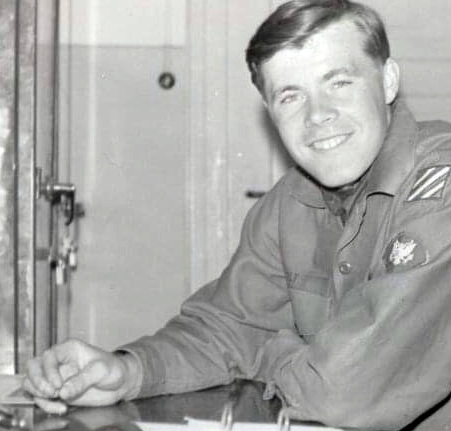
I have to confess that names are hard to come by. Back in basic training, some Soldiers had a very positive impact on me. Their names are long gone, but for this short time, they were as close as brothers.
The same can be said at DINFOS and each place and unit to which I have been assigned.
Certainly, Jack Parker and Jim Sheehy from the 7th Support Command in Germany stand out. Howard Berg from the State Area Command (STARC) is on the list.
Roger Bukszpan from the 2nd Brigade, 3rd Infantry Division, who guided me and was a mentor, made my list.
I really could go on and on. I worked with so many great Soldiers.
List the names of old friends you served with, at which locations, and recount what you remember most about them. Indicate those you are already in touch with and those you would like to make contact with.
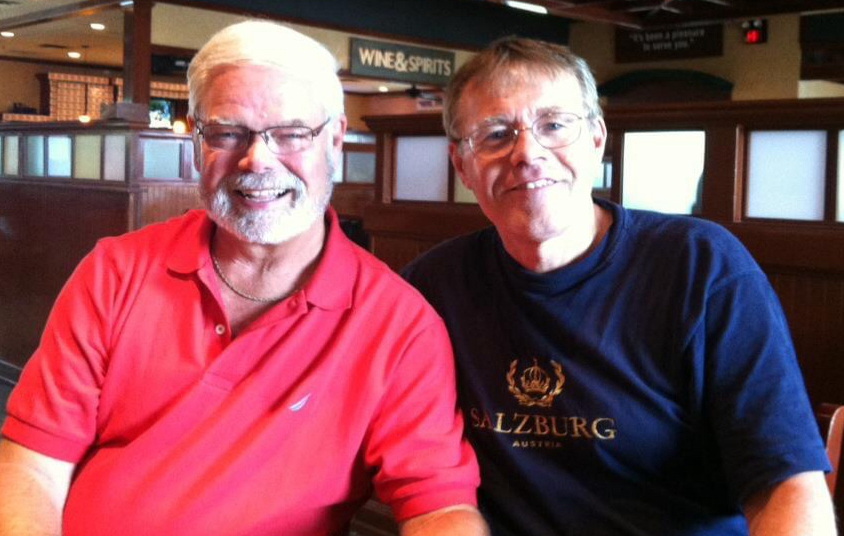
I am still in contact with three soldiers from my time in the Army, 1967-1970. Jim Sheehy and Jack Parker were with me at Panzer Barracks in Germany. They were also military journalists.
Phil Weston was with me at Gibbs Barracks in Frankfort, Germany. He was also a journalist.
Outside Panzer Barracks, about a mile through the woods, a small restaurant called Gasthaus In The Woods was nestled among the trees. Jim, Jack, and I hiked there many times.
Phil and his wife Sandy lived off base in Frankfort. We stayed in touch on a regular basis for many years, visiting back and forth as our families grew. Now, contact is through social media.
Social media is the method of staying in touch with the many Soldiers I have served within the Minnesota Army National Guard.
What profession did you follow after your military service and what are you doing now? if you are currently serving, what is your present occupational specialty?
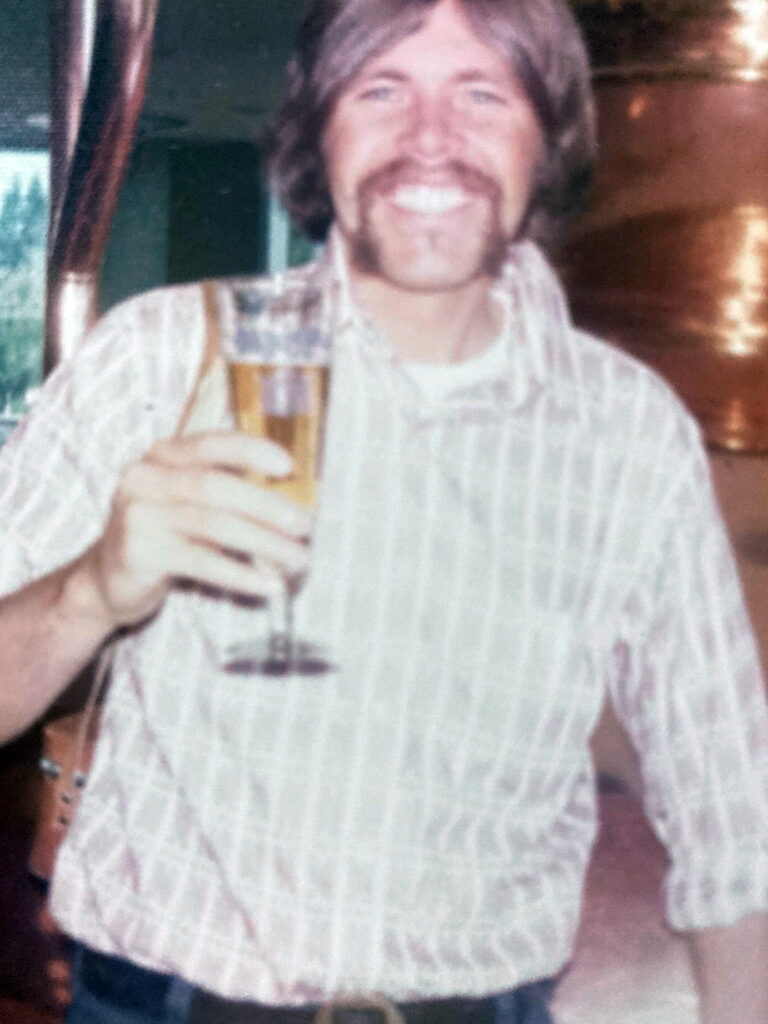
When I left the Army in January of 1970, I returned to the University of Minnesota. Initially, I was going to be a journalist and hoped to continue my civilian career, drawing from my military experience. I was a reporter for the Minnesota Daily for a while. We were paid by the inch of copy in any published article we wrote.
It was 1970, and war protests were the order of the day on campus. My assignments were to cover the unrest. My hair grew long, which was not unusual for the time. I wore my military fatigue jacket and grew a Fu Manchu mustache.
I wanted to be at the forefront of social change. I had witnessed students being attacked by police during protests, some being taken to the University Hospital with bleeding wounds suffered by beatings by police in riot gear.
Somewhere in that first year back at the University, I changed my major to Social Work. I graduated with my Bachelor of Social Work in 1973, went straight into Graduate School at the University, and obtained my Master of Social Work degree in 1975.
After a couple of years working as a Behavior Therapist for a group home, I began work for Hennepin County in March of 1977. I have worked there ever since. I retired in 2015 but went back to work on a consulting basis for the Afterhours Crisis Line for Hennepin County once every four weeks. In that capacity, I remain a Supervisor for Adult Protection and am on call from 4:00 p.m. Monday overnight through Friday and 24 hours a day on the weekend.
When I rejoined the military in 1989, I dove-tailed two careers, very different in appearance. It made for dynamic juggling at work, home, and life.
In what ways has serving in the military influenced the way you have approached your life and your career? What do you miss most about your time in the service?
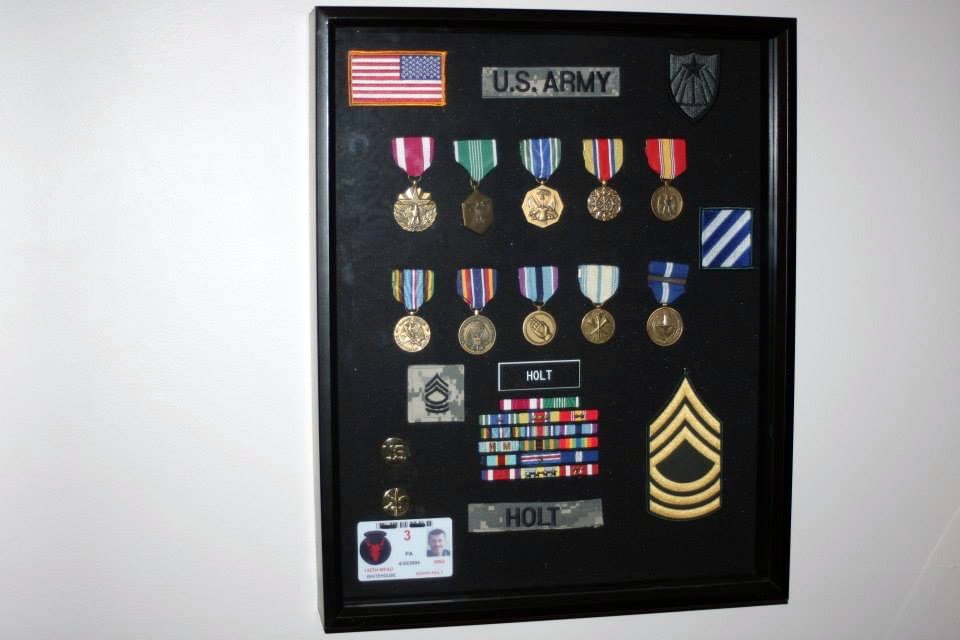
Right from the get-go, when I enlisted in January of 1967, the Army gave me a boot in the backside. I was pretty unfocused and happy to be leaving college behind. As soon as I started basic training, I realized I wanted to be in school and focused on a career. It took three years to get back into school; however, I re-entered as a highly motivated student. My grades were great, and after three years on the GI Bill, I graduated and went straight to Graduate School.
My initial three years in the Army were influenced by the Vietnam War. The public reaction to a person in uniform was hostile during those years and after I got out of the service in 1970. That left me torn a bit in terms of what it meant to be a Soldier.
Years later, in late 1989, I was convinced to return to service through the Minnesota Army National Guard. I was glad to have a second opportunity as the public support for the military had taken a 180-degree turn. There was almost unanimous support for the folks in the military.
The result was spending the next 19 years in the military and finally retiring with 22 years of being in uniform and a military pension.
Being in the military gave me an appreciation for life both in uniform and as a civilian. While my military job as a Journalist was different from my civilian job as a Social Worker, each job made me appreciate the unique differences in job assignments and how they actually complimented each other most of the time.
Being in the military focused my interest in following events around the world. In several instances, I was posted to foreign countries on military assignments and several times on deployment. Being in the Guard, I was also activated a number of times for disasters within the State, including tornadoes and floods, and once in support of relief from a hurricane.
I miss being directly impacted and involved in missions, especially humanitarian efforts or peacekeeping missions.
Based on your own experiences, what advice would you give to those who have recently joined the Army?
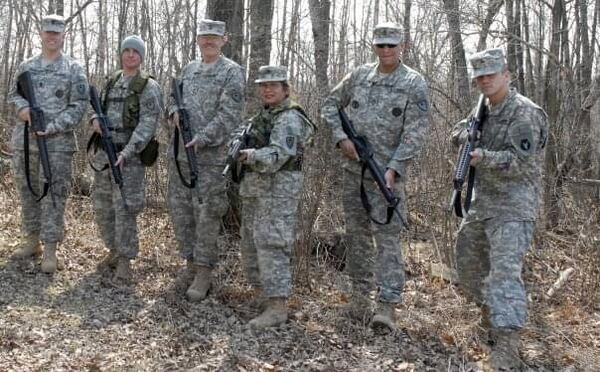
Get in condition, make healthy choices, and enjoy the adventure. It is amazing to me how military service enriches life and makes lifelong memories. Social media makes it a lot easier to maintain connections.
I can’t remember the names of a lot of folks I served with, but a picture with faces brings back a lot of recollections.
In what ways has togetherweserved.com helped you remember your military service and the friends you served with?
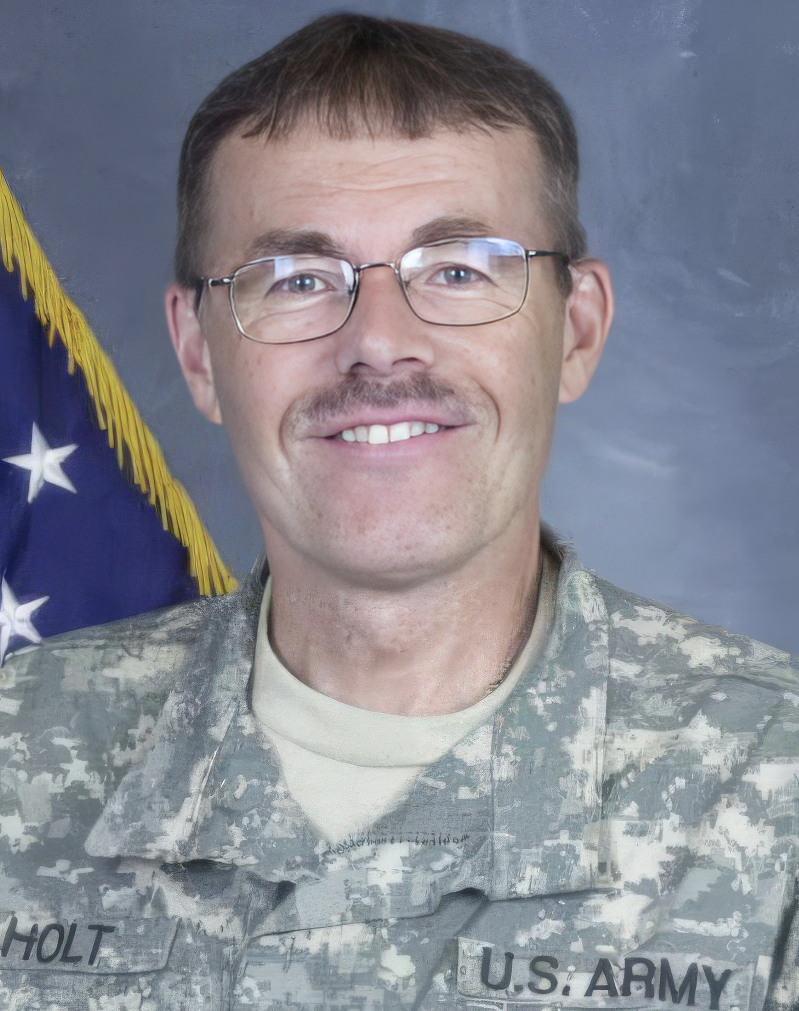
This site provides focus, and as I have mentioned, digging through pictures makes the memories come flooding back. Most of them are rich and remind me how fortunate I am to have served with such a band of brothers and sisters.
PRESERVE YOUR OWN SERVICE MEMORIES!
Boot Camp, Units, Combat Operations
Join Togetherweserved.com to Create a Legacy of Your Service
U.S. Marine Corps, U.S. Navy, U.S. Air Force, U.S. Army, U.S. Coast Guard
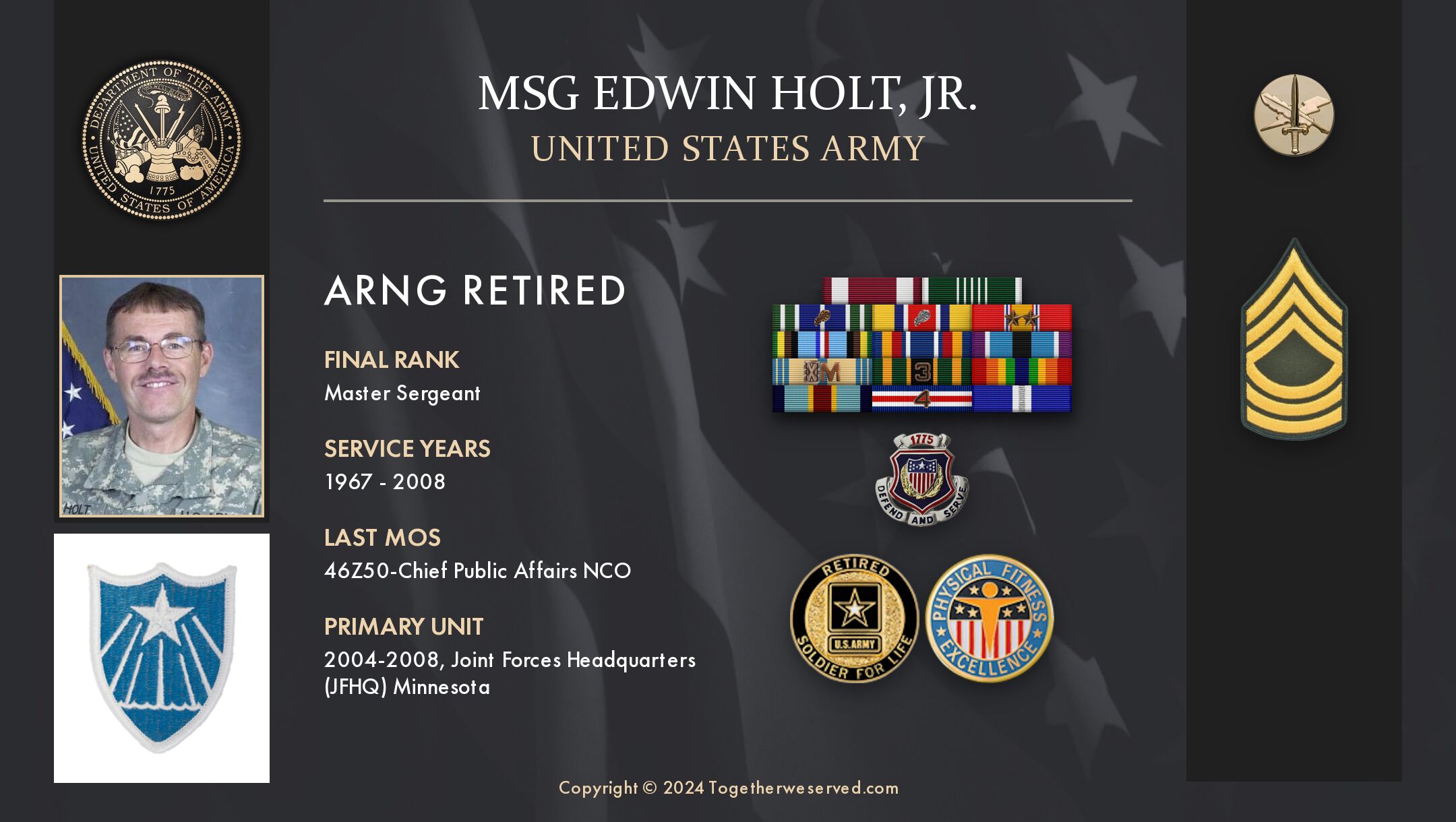
0 Comments